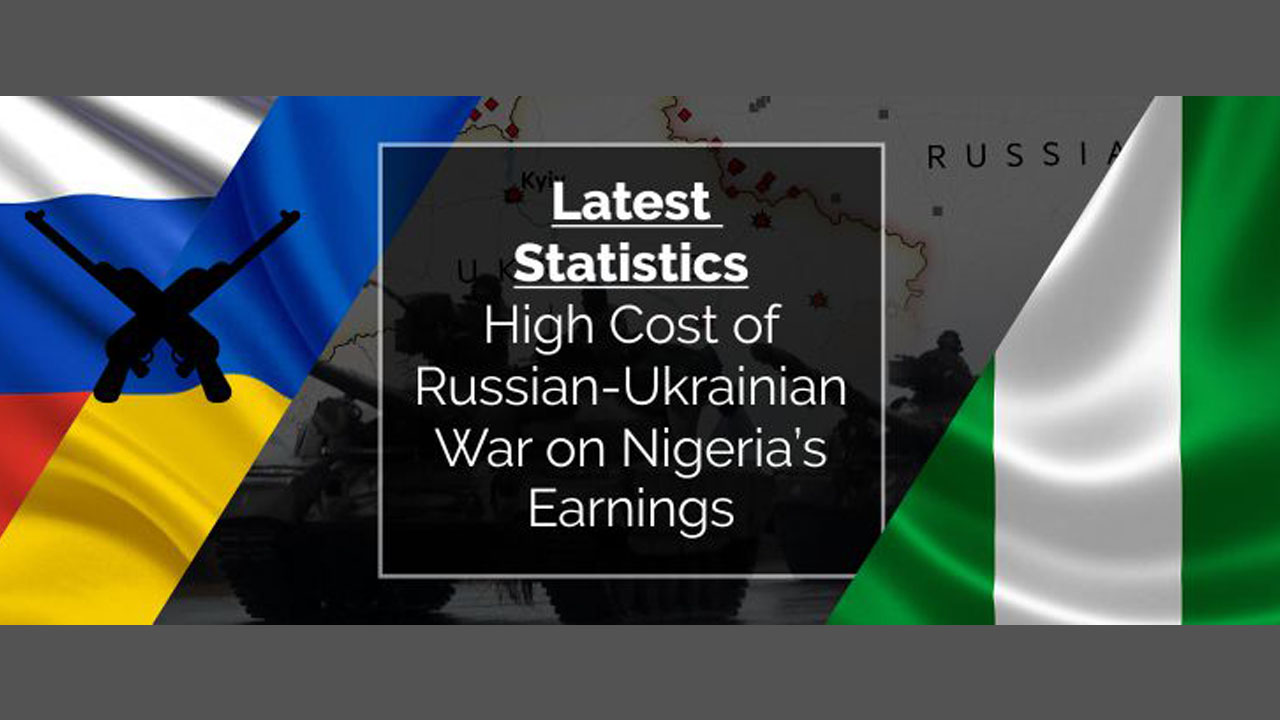
27 April 2022 – An oil-producing country like Nigeria shouldn’t be in such a risky situation when oil prices are at an all-time high.
There should be more benefits than harms from the ongoing war in Ukraine. However, this is unlikely to happen based on current conditions. If the war and the sanctions on Russia continue, Nigeria’s economy may actually slip into a more critical condition.
On March &, Brent crude briefly reached $139 per barrel, the highest price since 2008. Brent crude is currently trading at $110 per barrel, which is still $48 or 77% above Nigeria’s budget benchmark price of $62 per barrel.
Since oil sales account for nearly 90 percent of Nigeria’s export revenues, Nigeria should face a bright, not a gloomy, future. Despite the price surge – the highest in 10 years after the invasion – the situation is mixed.
Higher oil prices for Nigeria is good from a fiscal perspective. Subsidies, however, undermine the benefits. As a result of the ongoing conflict, the country’s imported food inflation rate, trade disruptions (but minimal) and capital imports may be negatively affected.
Due to Nigeria’s limited capacity to refine its own crude and reliance on fuel imports, higher oil prices will lead to increased expenditures.
In a February letter to parliament, President Muhammadu Buhari requested extra funds to cover petrol subsidies, noting that the country’s deficit was projected to rise to 4% of GDP. The original deficit estimate was 3.42%. The cost of petroleum subsidies in Nigeria amounted to $7 billion a year says Financial Analyst Olumide Adesina from Data Trading Platform – forexbroker.ng
Africa’s most populated country have also seen a steep decline in oil production over time. The average daily production in December 2021 was 1.31 million bpd down from 2.51 million bpd on average in 2005.
A number of factors contribute to this problem, such as aging infrastructure, low investment, vandalism, fiscal uncertainties, policy reversals, and industrialized theft of crude oil.
At present, Africa’s leading oil producer cannot even meet its OPEC quota of 1.8 million barrels per day, and leverage on the current prices of oil.
In addition, Russia and Ukraine both export agricultural commodities, especially grains. In the past three years, the Russian Federation and Ukraine have collectively exported 30 percent and 20 percent of the world’s wheat and maize, respectively. according to data from the Food and Agriculture Organization (FAO) of the United Nations.
Over the last few months, the price of wheat has risen by more than 60%, which has affected the price of flour and will ultimately affect the price and size of bread, a staple in many Nigerian households.
Millions in Africa are expected to have a worsening nutritional situation in a matter of a few months, expectedly six weeks after the war in Ukraine began.
An analysis of the March 2022 Cadre Harmonisé shows that 38.3 million people will experience a food and nutrition crisis between June and August, an increase of 40.2% from 27.3 million during the same period in 2021.
In the most affected countries for June-August 2022, the projected number of people are 19.5 million Nigerians.
The Central Bank of Nigeria has launched an intervention to increase local wheat production. It will not mature in time to handle this immediate shock, even if this works out. Forex rationing has already begun.
Given the limited options and the immediate impact, Nigeria must rally other African countries and multilateral institutions to rally Western support and concessions.
Furthermore, the government needs to reopen forthright discussions not just about savings, perverse incentives, food and energy security, deregulation, and subsidy removal, but also on the urgent implementation of reforms into the ailing oil sector
For more information, please contact:
Louis Schoeman from Forexsuggest.com
Email: [email protected]
Tel: +352 621 528 449






